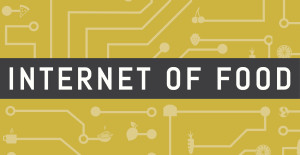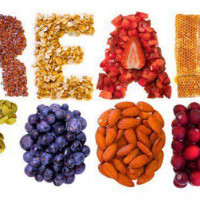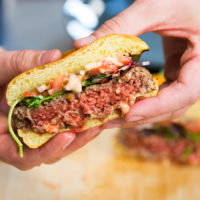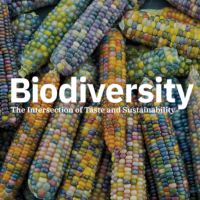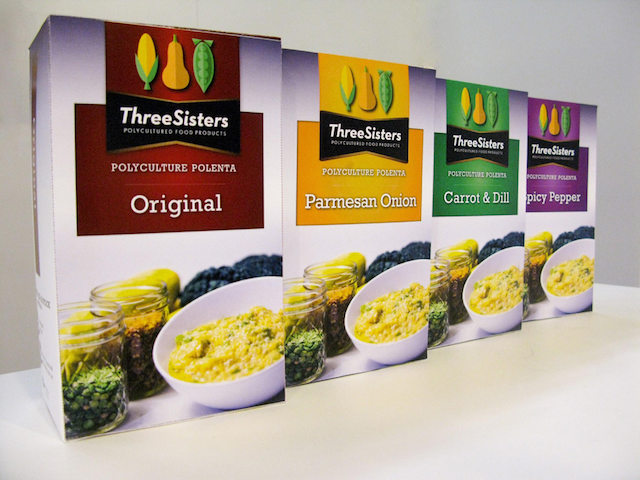
Guest post by Mike Lee, founder of The Future Market, on how sustainable agriculture and big food can co-exist. This post is part of our Internet of Food Series. The views expressed are are solely those of the author and do not reflect the views of Food+Tech Connect.
Since 1974, the average number of items in a grocery store has increased from 9,000 to almost 44,000 today. Yet today, 75 percent of the world’s food is generated from only 12 plants and 5 animal species, finds the Food and Agriculture Organization. So while the range of products available has widened, the range of crops grown to produce those products has narrowed over the last 40+ years. This is a food system dominated by monoculture.
Today’s Food Megbrands Rely on Monocultures
Despite the groundswell of sustainable innovation happening in food today, much of our industry continues to make products from the same small set of agricultural ingredients. The legacy business model of a food megabrand is largely dependent on sourcing massive quantities of cheap, uniform ingredients. The majority of our industrial food system is based on monocultures–repeatedly planting the same crops on a piece of land–that drain nutrients from the soil, require expensive artificial fertilizers and are more susceptible to pests, weeds and disease.
Monocultures are seemingly perfect for meeting the needs of a large, legacy food brand, but to what end? As large companies lose market share to sustainability-focused food brands and face increasing resource constraints, it’s becoming clear that their current production model is simply bad for business.
Can Sustainable Agriculture & Big Food Coexist?
Are sustainable agriculture and building a large food business mutually exclusive? This is a question that keeps me up at night.
In my food innovation lab, The Future Market, one of the many ways we tackle questions like this is to create concept food products. Have you ever been to an auto show and seen how car manufacturers create concept cars that paint an ideal vision of the future? Our concept food products are like those concept cars, only for the food industry. The goal of building these concept products is to spur a new line of thinking as to what kinds of foods might exist if we massively rearranged today’s food system.
Can you practice sustainable agriculture and have big business at the same time? We began to answer this question with another one: What would the food industry look like without monoculture farming?
Three Sisters: Polycultures Are Key to Making Sustainable Food at Scale
This question led us to develop our latest Future Market concept product: Three Sisters, Polyculture Polenta.
Three Sisters is a brand of instant polenta made from corn, beans and squash. The polenta is available in four flavors, but the bulk of the product comes from these three crops, which are planted together and work synergistically to support each other and the soil. It’s a food brand built on polyculture, instead of monoculture.
The Three Sisters crops have been planted by the Native Americans for over 6,500 years to sustain themselves and their soil. Growing these crops together is one of the oldest forms of polyculture, an agricultural technique where multiple crops are planted together to mimic the biodiversity found in natural ecosystems.
Here’s how the Three Sisters work together: first, corn is planted, which creates a sturdy scaffold for beans to climb up as they grow. Second, beans bring valuable nitrogen into the soil that fuels the growth of the corn and squash, the third crop. Finally, the squash foliage covers the ground, which blocks out the sun and inhibits the growth of weeds. This creates a living mulch to keep soil moist, while the sharp hairs on squash vines help deter pests. It’s a beautiful system that we think the majority of food products should be based on. The good news is there’s many more crop combinations that fall under the polyculture category.
There are certainly challenges with polyculture farming. For example, there aren’t any farm machines today that can efficiently harvest a crop like Three Sisters, which makes harvesting at scale difficult and expensive. Consumers have also become used to having the same packaged food products anywhere, anytime, with little regard to seasonal growing cycles. While these are considerable obstacles, we believe that our concept products can spark conversation and demand, which is a first step to corralling innovators to overcome those obstacles.
Our hope with Three Sisters is to show that a mainstream brand can flourish while also reinforcing a more sustainable way of producing food.
The future of food is food that’s good for people, planet and profit. There are many ways to accomplish that, but I believe that building food brands and business models on a foundation of polyculture, not monoculture, is the key to a better future of food.
Learn more about the Future Market on their website and register now for their Future of Protein dinner on June 28th.
Internet of Food is an editorial series exploring how we might use technology, new business models and design to guarantee healthy, safe and sufficient food for everyone. Join the conversation between March 23 and April 29. Share your ideas in the comments, on Twitter using #internetoffood, Facebook, Instagram or LinkedIn, and follow the conversation by subscribing to our newsletter.
____________

Mike Lee is the founder of Studio Industries, a food product design and innovation studio, and founder of The Future Market, a futurist food lab that explores what our food system could look like in the year 2065 through pop-up experiences and conceptual product prototypes.
Mike’s experience in food design & innovation has covered a wide range over the past 10 years. Prior to Studio Industries & The Future Market, Mike led product development initiatives on the Innovation & New Ventures team at Chobani. At Chobani, Mike focused on building out the Greek Yogurt maker’s savory product platform and drove the product design process from research, insights and ideation, to food, flavor and packaging development, and then finally to business planning and production.
Mike also founded the Studiofeast underground supperclub, a sister organization to Studio Industries. Studiofeast creates unique dining experiences that use food as a medium to design experiences that range from the artful, to the educational, to the hedonistic.
Mike is a frequent and influential speaker on food innovation and has been featured in numerous publications and conferences such as SXSW, Seeds & Chips, EXPO 2015 Milano, Fancy Food Show, Bloomberg BusinessWeek, FastCo Exist, CNBC, Edible Brooklyn, Food Navigator, and more. Mike is a Detroit native and was trained in Business at the University of Michigan and Design at the Parsons School of Design. He now lives in Brooklyn, NY.

